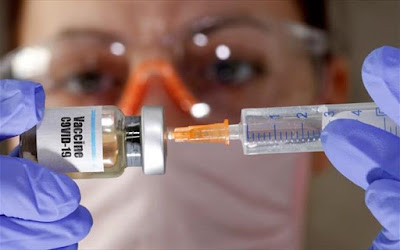Filenews 26 January 2021
Reactions from British politicians have been provoked by the statements made by THE EU Health Commissioner Stella Kyriakidou on the establishment of a transparency mechanism for the export of anti-crown vaccines from the EU to third countries.
The statements followed the controversy caused by AstraZeneca's announcement of a 60% reduced amount of vaccines to the EU in the first few months due to problems at a European production plant.
In London, the statements have been seen by some MPs as a warning to Britain to impose restrictions on exports of vaccines made at facilities in member countries.
British reports comment that European officials suspect that quantities of AstraZeneca vaccines destined for the EU have been sent to Britain due to a delay in the European Medicines Agency's approval of the preparation.
Although in the early stages Britain had obtained AstraZeneca vaccines from facilities in Belgium, a Downing Street spokesman said that larger quantities of the company's vaccine destined for Britain were now manufactured at facilities on British soil in Oxfordshire and Staffordshire counties.
On the contrary, possible obstacles to Pfizer's export of vaccines would create serious problems and delays in Britain's vaccination programme, as the country imports the US company's formulation from a production plant in Belgium.
David Jones, deputy chairman of the Eurosceptic group of Conservative EMG MPs, told the Telegraph that the EU obviously has problems securing vaccines and behaves in a "childish" and "mean-hearted" way in order to create problems in Britain.
Former Health Secretary Jeremy Hunt commented that any unilateral action by the EU that would prevent the delivery of vaccines for which Britain has paid would poison the economic relationship between the two sides and would be "vaccination nationalism."
Parliamentary science committee chairman Greg Clark warned that now is not the time for additional bureaucratic hurdles in the vaccine supply chain.
Britain, like the EU, will be affected by delays in Pfizer's delivery of vaccines due to the company's announced factory upgrade work.
The delay in delivering vaccines to the EU announced by AstraZeneca, however, is thought to have no impact on deliveries to Britain. However, the company has already for weeks transferred from the end of January to mid-February the target of delivering 2 million doses per week to Britain.
According to Politico, cited by an EU official, the delay in deliveries from AstraZeneca to the EU is due to a batch of vaccines that presented a problem and the search for raw materials to speed up production of the vaccine.
Meanwhile, AstraZeneca dismissed as "absolutely wrong" German reports that the European Medicines Agency has found that the company's vaccine is only 8% effective in protecting citizens over the age of 65.
According to Bild and Handelsblatt newspapers, the agency may therefore reject the use of the formulation for this age group.
Source: eyenews / CYPE
